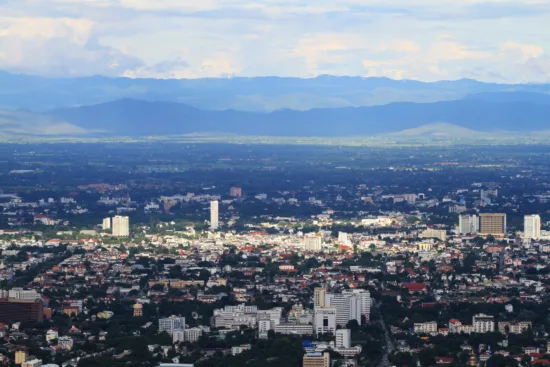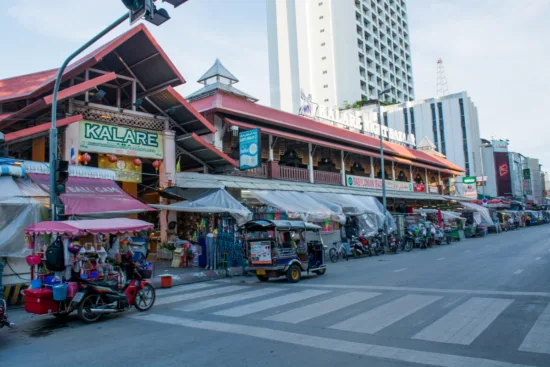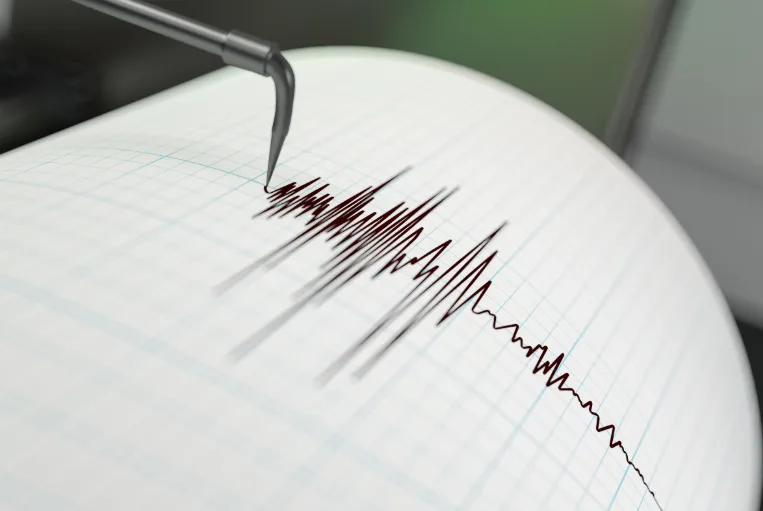The serene city of Chiang Mai, nestled in the lush mountains of northern Thailand, has long been a dream destination for property investors, expats, and digital nomads. Known for its rich culture, affordable lifestyle, and growing real estate market, it has attracted many looking to own a slice of paradise. However, the recent 7.7 magnitude earthquake, originating near Mandalay in Myanmar and felt across northern Thailand, has shaken not only the ground but also the confidence of property buyers eyeing Chiang Mai.
The aftermath has left many questioning the safety of investing in the city’s real estate. Are properties still a viable investment? What precautions should buyers take? Despite the challenges, Chiang Mai remains an appealing destination for those willing to approach their decisions with careful evaluation. If you’re exploring Properties for sale in Chiang Mai, this guide will help you understand the latest developments and what you need to know to make an informed purchase.
The Earthquake’s Impact on Chiang Mai’s Real Estate

Visible Damage to Buildings and Condominiums
The earthquake caused visible damage to several high-rise condominiums, including well-known buildings such as Duangtawan and Supalai. Reports indicate significant structural concerns, with many residents on upper floors particularly alarmed. Cracks, some stretching across multiple floors, have been observed, leading to evacuation orders for safety assessments.
This event has highlighted the vulnerability of older high-rise buildings not designed to withstand strong seismic activity. Public concern has shifted toward questioning the structural integrity of properties, especially older constructions, in Chiang Mai’s burgeoning real estate market.
Sluggish Market and Buyer Sentiment
Immediately following the earthquake, the property market experienced a noticeable slowdown. Potential buyers have hit pause, focusing on ensuring safety over pursuing new acquisitions. Developers, on their part, are trying to reassure the public with promises of stringent safety checks and inspection reports. While market anxiety may be temporary, it has undoubtedly shifted buyer priorities.
That said, Chiang Mai’s appeal as a cultural and business hub remains strong. For those who do their research, the market still holds opportunities for secure, lucrative investments. Caution and due diligence are now paramount.
How the Government and Developers Are Responding
Government Actions
Authorities in Chiang Mai have taken swift measures to ensure public safety. Building inspections have been mandated, with evacuation orders issued for properties showing visible damage. Temporary assessments have helped differentiate properties requiring significant repair from those deemed safe. Public buildings, such as hospitals and temples, have also been inspected, with some undergoing minor restorations.
This proactive approach by the government, though commendable, has underscored the need for more robust building regulations going forward, especially within areas prone to seismic activity.
Developer Initiatives
Top developers have scrambled to regain buyer trust. Companies such as Supalai have conducted nationwide inspections of their projects and offered assurances backed by engineering reports. Meanwhile, others like Ananda Development and AP Thailand have prioritized communication with residents, hiring independent experts to inspect their buildings and address immediate concerns.
The varied responsiveness of developers highlights an essential factor for prospective buyers. Developers with proactive, transparent approaches are seeing increased credibility, while those delaying action risk losing consumer confidence.
Reassessing Priorities in Chiang Mai’s Property Market
The earthquake has shifted priorities for property buyers in Chiang Mai. Here’s what’s changed:
- Safety Over Aesthetics: Buyers now prioritize safety features over flashy designs or premium locations. Construction quality and earthquake resistance are essential factors when choosing a property. With greater awareness of natural disaster risks, people focus more on building strength and durability over amenities like swimming pools or rooftop lounges.
- Developer Reputation: A developer’s reputation is key. Buyers value a proven track record, adherence to safety standards, and transparent communication. Developers known for quality and reliability are gaining a competitive edge, making trust a critical factor in decisions.
- Preference for Low-Rise Buildings: Many buyers prefer low-rise properties over high-rise towers, seen as more vulnerable to earthquakes. Low-rise buildings offer better security during seismic events and are easier to evacuate in emergencies. This trend highlights a demand for practical, safety-first housing in earthquake-prone areas.
Due Diligence Checklist for Buyers
To make a safe and smart investment, prospective buyers should consider the following steps:
1. Verify Developer Credentials
- Ensure the developer is registered with Thailand’s Department of Business Development (DBD) to meet legal requirements.
- Check their compliance with local regulations, such as zoning laws, permits, and safety standards, to avoid legal or structural issues.
- Review their past projects and customer feedback to assess work quality, reliability, and timely completion. Look for testimonials or case studies showcasing their expertise.
2. Conduct a Thorough Property Inspection
- Check the property for visible damage, like cracks in the walls, floors, or ceilings. Pay close attention to X-shaped or diagonal cracks, as these may signal serious structural issues.
- Request inspection reports from certified professionals, especially if the area has recently experienced seismic activity. These reports assess the building’s condition and highlight potential risks.
- Focus on properties built after 2014, when stricter earthquake-resistant standards were introduced. These buildings are more likely to meet modern safety regulations.
- If you’re unsure about the property’s stability, consult a structural engineer for a second opinion to avoid costly repairs or unsafe investments.
3. Evaluate Earthquake Resilience
- Confirm whether the building adheres to modern seismic-resistant design principles by reviewing its construction year and any updates to its structural design. Look for buildings constructed after updated seismic codes were introduced in your area.
- Ask developers or property managers about regular maintenance schedules, including inspections of the foundation, structural reinforcements, and any recent safety upgrades made to improve earthquake resistance. Ensure these measures are documented and up to date.
Long-Term Risks and Opportunities

Seismic Risks in Northern Thailand
Chiang Mai and the surrounding region are located in a seismically active area, making earthquake preparedness an important consideration for residents and investors alike. The region has experienced tremors in the past, and while they are often minor, the potential for more significant seismic activity cannot be ignored. Buyers should take proactive steps to mitigate risks by prioritizing properties constructed to higher safety standards, such as those designed to withstand earthquakes. Consulting with local experts and ensuring proper structural assessments are also crucial for long-term planning and peace of mind.
Market Adjustments and Future Trends
Over time, market demand will recover, with a stronger focus on quality construction and transparency. Developers who adapt to stricter safety expectations and regulations will thrive, creating a more reliable market for investors.
Buying Safely in a Post-Earthquake Chiang Mai
While the earthquake has created challenges, it also represents an opportunity for the market to grow stronger and more secure. Properties meeting new safety benchmarks and engineering standards will enjoy higher values in the future.
If you’re looking for properties for sale in Chiang Mai, prioritize reputable developers, conduct thorough inspections, and invest in properties with verified earthquake resistance. By taking these steps, you can make a safe and informed investment in one of Thailand’s most enchanting destinations.

